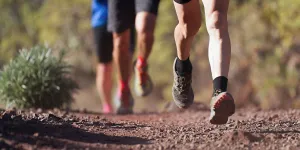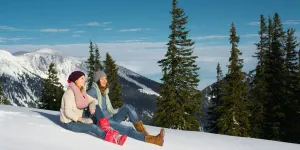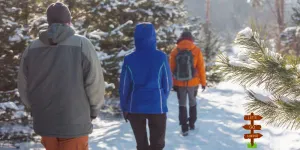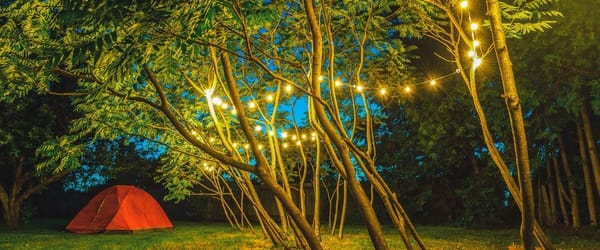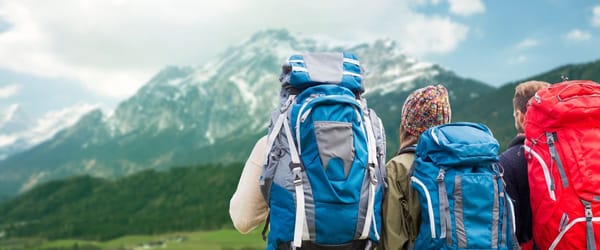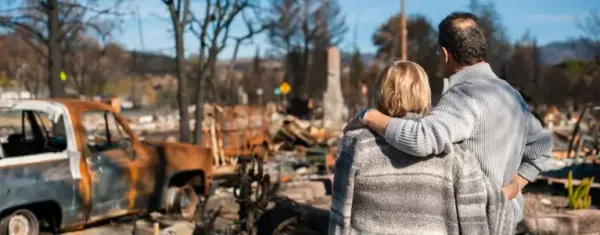When it comes to camping, having the right tools for camping is essential for ensuring a safe and enjoyable experience. From portable water filters and first aid kits to camping chairs and tents, bringing the right tools can make all the difference in your outdoor adventure.
Picture the moment when you realize you've left your sleeping bag or crucial knife behind, deep in the woods. As someone who has camped for years, I've encountered numerous instances of poor packing resulting in nothing but a wretched experience.
In this article, I will share with you what are the crucial items that you must bring along for camping, and my recommendation for the specific type of tools and gear you should consider. Simply follow my comprehensive camping equipments list and avoid any doubts about what to bring. By doing so, you'll be well-prepared and set for an enjoyable outdoor experience.
Here are the most common and useful tools for camping you will need (must have for camping):
- Knife - Fixed or Foldable Blade
- Axe, Saw and Hammer
- Flashlight and Lantern
- Power Sources Including Power Banks
- Survival Tools - Multitools and Fire Starters
- Cords, Duct Tape and Repair Kits
- Communication and Navigation Devices
- Tent and Sleeping Bag
- Cookware, Pots and Pan
- Folding Chairs & Portable Table
- Water Filter and/or Purification Tablets
- First Aid Kit
- Others
If you wish to see the actual recommended tools for camping, you can click Best Camping Tools for 2024 to see the carefully curated list of camping tools for 2024. However, we would recommend that you read this article to better understand the tools needed.
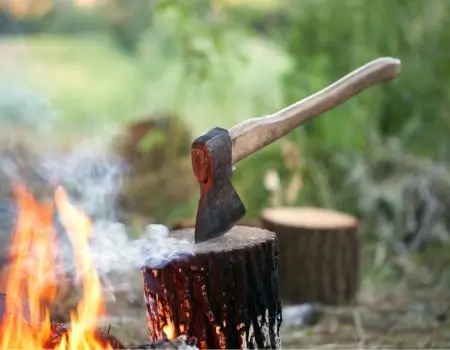
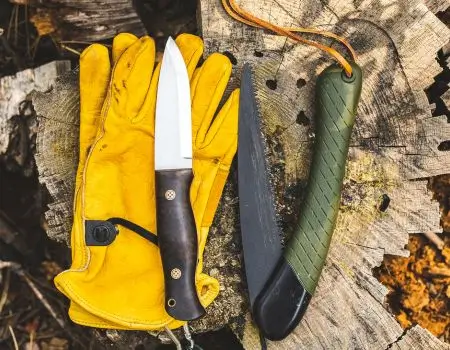
Critical Tools for Camping Include Fixed Blade Knife, Axe and Saw. These are the tools you must have on your camping trip.
Knife - Fixed or Foldable Blade
A good knife is the most crucial tool in your camping arsenal and it is one of your most important tools. It serves multiple purposes, from preparing food and cutting ropes to self-defense against wild animals. When it comes to choosing between a fixed or foldable blade, it depends on your preference and intended use. Don't save on this. Get a good sturdy one.
- Fixed Blade: The most durable option for heavy-duty tasks such as chopping wood, building shelter, or hunting. It also doubles as a strong kitchen knife for food preparation. However, it occupies more space in your backpack and requires a sheath. Given its sturdy build, I would strongly recommend the Fixed Blade version, with a blade length of 5 -7 inches.
- Foldable Blade: Lightweight and easy to carry around, ideal for everyday tasks such as slicing food or cutting ropes. You can choose between a straight edge or a serrated edge, depending on the intended use.
Axe, Saw and Hammer
These tools are essential for setting up camp, building a fire, and preparing food. An axe is useful for cutting wood while a hammer can be used to secure tent stakes or nails. A saw can help with the cutting of larger logs.
These tools come in various sizes and designs, so choose according to your needs and the level of difficulty you expect on your camping trip. I would recommend a multi-tool, which consists of these 3 primary tools rather than individual items.
If you are unable to find such multi-tools, then perhaps you can go for a small saw and an axe. The axe can be doubled as a hammer too. Unless you are planning for an extreme camping trip such as deep into the forest, you do not need to have a saw and axe larger than the typical size of a maximum of 12 inches.
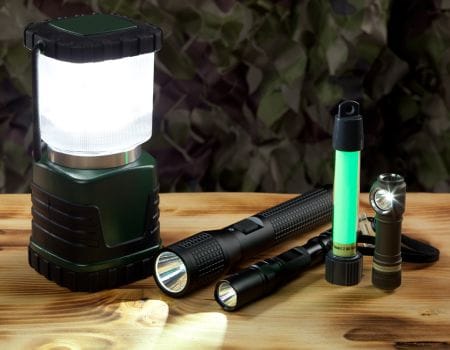
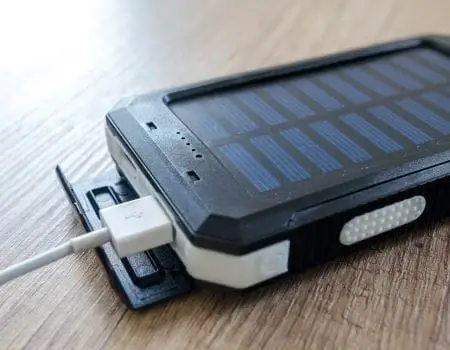
The night outdoor in the wood can be intimidating. Having a Lantern and Flashlights will ensure that you are able to see your way around. Power Banks is crucial to ensure that you will have sufficient power to last through your camping trip, especially one with attached solar panel.
Flashlight and Lantern
Having a reliable source of light is essential for camping, especially at night. A flashlight can be used for personal use such as walking in the forest or sneaking out to relieve yourself among the trees.
A lantern provides overall illumination in your campsite, providing that sense of comfort and safety for that great feeling of camping.
For convenience, choose LED lights as they are brighter, more energy-efficient and those that are rechargeable.
Choose one of those LED flashlights with a minimum of 1,000 lumens and with different lighting modes, with strobe functions for signaling. Read more on EDC Flashlight for a better understanding of what is available.
LED Lanterns are a great option as they can hang from the ceiling of your tent and provide enough light for reading or playing games at night. Again, choose one with a minimum of 1,000 lumens and with different lighting modes.
This will allow you to select low lumen providing a low glow throughout the night as you sleep, whilst conserving battery power. Select one with a minimum battery capacity of 10,000 mAh. To read more on Camping Lantern, click Guide to the best camping LED lights for tents.
Power Sources including Power Banks
Power sources such as power banks are life savers, given the high consumption rate of today's powerful gadgets, from handphones, wireless transmitters, lanterns, GPS and trackers, and hundreds of other energy-consuming monsters.
Well-equipped campers are also bringing along their min-fridge, USB-powered heaters and others. This is simply mind-boggling.
For a weekend camp, or probably a max of 3-4 days, one or more Power Banks will probably be sufficient. Beyond that, either you invest in a small portable genset or a good array of solar cells to support the increased consumption.
For power banks, look for those in the range of min 10,000mAh, preferably 20,000 mAh. You can also choose those with small solar panels embedded in the power bank for that extra juice during sunny days. Read Power Banks For Camping for a better understanding of choosing the right power banks.
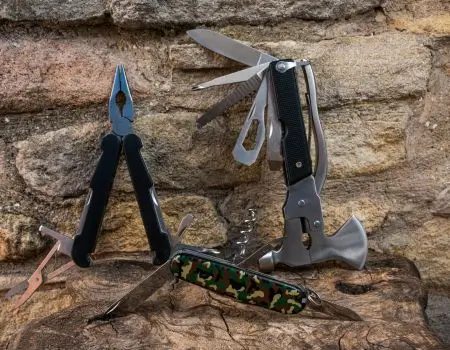
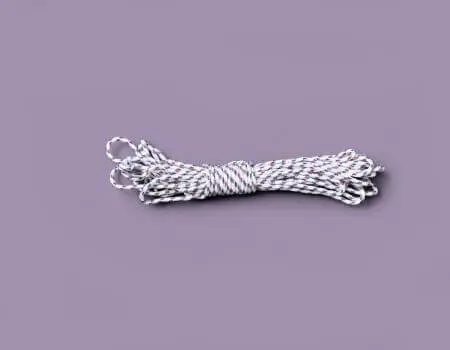
Survival tools such as Multi Tools and Cords are not only life saver in an emergency, but also useful in your camping trip, such as the use of the plier to loosen a bolt and other mundane tasks.
Survival Tools - Multitools and Fire Starters
In case of emergencies, survival tools are crucial for your safety and well-being. A multitool is a compact device that combines various tools such as pliers, scissors, screwdrivers, can openers, knives and others in one single unit. It's an all-in-one solution for minor repairs or unexpected situations.
This versatile tool proves invaluable for a range of small tasks. It effortlessly cuts through ropes and fishing lines, tackles the trickiest nuts and bolts, and makes quick work of opening packaging, cans of food and many other uses.
Choose one with multiple tools, the more the merrier as we will never know when we will need it. But it will be available should the need arise.
Fire Starters are highly essential for camping, and other outdoor activities. This simple yet indispensable tool can mean the difference between life and death in an emergency, or between enjoying a hot meal or going hungry.
Simply choose the one that you are most comfortable with. For many, it would be the simple gas lighter or fire matches. Just make sure that it is kept dry.
Cords, Duct Tape and Repair Kits
Whilst camping or in the great outdoors, it's always wise to have some cords, duct tape and repair kits on hand. These items come in handy for various purposes such as securing tent poles or repairing ripped tents or sleeping bags. They can also be used to make a makeshift clothesline for drying wet clothes.
A good repair kit should include multi-purpose tools like scissors, thread, needles, safety pins and buttons. Include a repair kit for vinyl repair for the repair of float, air mattresses and other inflatable devices.
As for the duct tape, make sure to bring a roll that is at least 5-10 yards long, and about 3 inches wide.
For cords, choose ones that are strong enough to hold your tent in place during windy conditions but not too thick to be cumbersome. You can also opt for reflective cords to help locate your tent in the dark.
Don't underestimate these simple folk stuff. You will thank yourself for bringing them along on your camping trip.
Communication and Navigation Devices
When out camping, especially in the wilderness, it is important to have means of communication and navigation. A reliable communication device can be a lifesaver in case of emergencies as you can easily call for help or communicate with others in your group.
If you are planning to camp deep in the forest where normal GSM signal may be lacking, it is prudent to bring along a Satellite phone. Even a simple Sat Phone without voice but with messaging capability can be a lifesaver.
Otherwise, a regular mobile cellular phone will suffice. Just don't waste all the battery on streaming video or watching YouTube and TikTok.
A good GPS navigator device, especially those with satellite support will help you navigate through unfamiliar territories, enabling you to find your way back to your campsite safely. Most cellular handphone has GPS but may lack the mapping details in the dense forest.
Personally, I make it a habit to have a dedicated GPS navigator in my backpack when I am out in the wilderness. I hate the panic feeling of loss out there. Learned my lesson far too many times before.
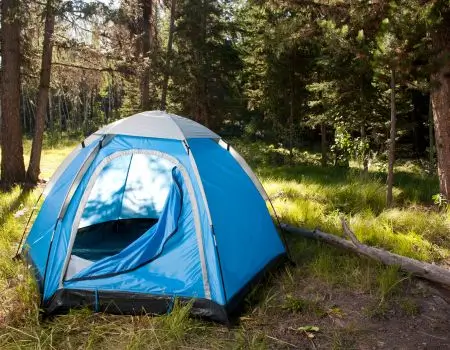
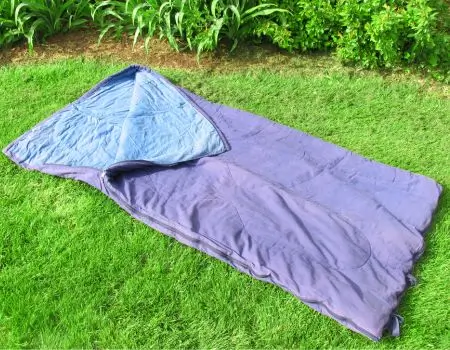
Dome Shaped Tent and Oversized Sleeping Bag are the basic of a great camping.
Tent and Sleeping Bag
The Basics of Camping Accommodation
When you're out in the wilderness, your shelter is your home away from home. It's not just about having a place to sleep; it's about ensuring protection from the elements and having a comfortable base to return to after a day of adventure. A lot will depend on the type of camping you are planning for.
On your list should be a high-quality tent that's suited to the climate and terrain of your camping destination. Look for features like waterproofing, wind resistance, and easy setup.
If you are new to camping, a pop-up tent will be your best choice as it is easy to pitch the tent. Go for a dome-shaped tent as it offers more headroom and stability compared to other shapes.
Pair your tent with a reliable sleeping bag, preferably one designed for the temperature range you will be camping in. Depending on your body size, sometimes an oversized sleeping bag may be more comfortable. You will appreciate the extra space inside without feeling all cramped up.
It is also advisable to bring an extra tarp or groundsheet to protect your tent floor from any sharp rocks or debris.
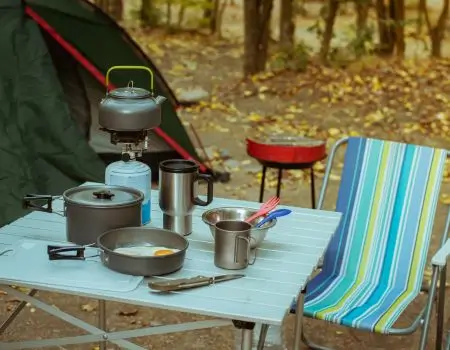
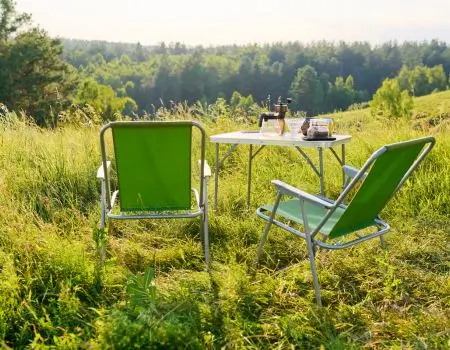
Bring along proper cookware, pots and pans for a truly enjoyable camping trip - hot cooked foods and coffee, with minimum mess. With camping chairs and table it further enhance the outdoor dining experience, without the risk of insects or snakes sharing the food with you on the ground.
Cookware, Pots and Pans
The aroma of food cooking over a campfire is one of the great joys of camping. To make this a reality, you'll need the right tools. A portable camping stove is a must-have for preparing hot meals, especially in areas where open fires are prohibited.
Select a stove that is handy and compact. You will need one that delivers enough cooking power for the duration of your camping trip, or simply bring along an extra bottle of propane. A gas stove is the most convenient option for cooking as it eliminates the need to search for dry wood or alternative fuel sources.
You are not going to prepare a buffet or a gourmet meal, but a cozy, delicious and quick (maybe dirty) meal under the sky.
Invest in a simple set of Pots and Pans. At least 2 pots of different sizes, a bigger pot with a diameter of 8 - 10 inches and a smaller one, perhaps 6 inches. This smaller pot can be used to boil water for coffee. This saves you from bringing along a kettle which is bulkier given its spout.
A mid-size pan of about 8 - 10 inches in diameter would be a good size. If you have to feed many campers, then you just have to bring along a bigger one or cook the same dish twice or cook multiple different dishes.
Don't forget spoons, forks and knives, and some napkins, both the regular and moist types.
A good way to organize all these cooking needs and accessories is to bring along a Kitchen Camping Box with everything inside, properly thought through with all that you need, neatly organized and packed.
If you prefer to construct a Kitchen Camping box from scratch rather than buying a complete box, click Kitchen Camping Box - How to Assemble It Yourself
Folding Chairs & Portable Table
Chairs and tables serve a purpose beyond mere luxury; they provide convenience during meals and, more importantly, ensure safety. As you become engrossed in eating that hot and delicious food under the stars, creeping insects or even snakes may sneak up on you on the ground. Not sitting on the ground is an easy way to mitigate the risk. Read more about the risks of camping and snake bites.
Choose lightweight yet sturdy foldable chairs that can be easily packed away when not in use. They should also have a good backrest and armrests for maximum comfort. As for the table, make sure it's compact and can be set up quickly, with a stable surface for food preparation and dining. Choose those that are foldable with an Aluminum frame. Useful for playing cards or board games too.
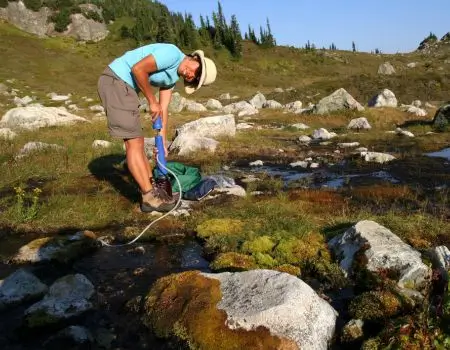
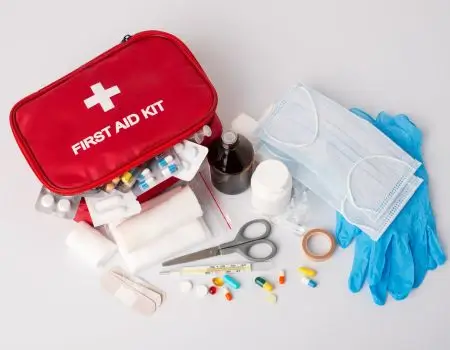
Water Filter are gears you want to bring along as it will ensure that you will have clean drinking water, even if the river or lake looks murky. First Aid Kits are life saver and should contain the minimum essentials to handle small wounds or snake bites.
Water Filter and/or Purification Tablets
Water is essential for survival, and even more so when you're out camping. While you may have brought along enough drinking water, it's always a good idea to have backup options in case of an emergency.
A portable water filter or purifier can come in handy if you happen to run out of clean water or encounter natural sources like rivers or streams during your trip. My favorite is those water filter straws. These slim filters are efficient, easy to use, and extremely handy.
Make sure to select those with min 99.9999% filtrations of bacteria, viruses, parasites, and microplastics, and a pore size of 0.2 microns or smaller, and with a replaceable activated carbon filter.
You can also bring along purification tablets as a backup option, especially if you're unsure about the cleanliness of the water sources in your camping area. However, follow the instructions carefully on using the tablet correctly.
First Aid Kit
Accidents do happen even if you are careful. First aid kits are essential for any camping trip, no matter how short or easy it might seem.
When choosing a first aid kit, make sure it contains all the essentials like bandages, antiseptic wipes, painkillers, gauze., insect repellent, and a snake bite kit.
You can also add in personal medications specific to you and your family members' needs.
Include small items like a whistle for signaling help, round-nose scissors, tweezers and a thermometer (simple mercury type will do). Make sure you check and restock your first aid box before you set off for your camping trip.
Others
There are many other tools and supplies that you may need, but may not be essentials. If you are planning for car or SUV tent camping, then you have all the room to bring some of these extra tools and supplies.
Some of these are:
- Rechargeable Hand warmer especially if you are planning to camp during fall or winter when the weather is cold.
- A camping fridge to keep your perishable foods such as meat and fish. It is something that you may want to consider if you are planning to camp for an extended period during the warm season.
- Monoculars for bird and wildlife observation. It is compact and easy to pack.
- Collapsible water containers, insulated water bottles, thermoflask, and outdoor shower bags.
- Biodegradable soap, sponge, wet wipes for cleaning up after meals, and sealable bags for waste disposal (remember that you must always minimize environmental impact).
- Radio, preferably a hand-cranked radio for emergency news.
- Extra batteries or rechargeable solar power banks.
It's A Wrap!
Camping can be a fun and adventurous experience, but it's also important to make sure you have all the necessary tools and supplies for a safe and comfortable trip.
This checklist has served me well in most of my camping trips. I learned from experience that it is better to pack more than less. Crucial items such as knives, lights, survival tools and communication devices must be treated with respect and accorded priority in the packing.
Look through the checklist, visit the sister article - Best Camping Tools for 2024 for those recommended tools. Plan accordingly and always prioritize safety when it comes to preparing your camping gear. Make the necessary adjustments when you are planning for summer camping gear or for your winter camping equipment list, which is basically adding more warm accessories such as gloves, caps and perhaps, a portable heater.
Happy camping!
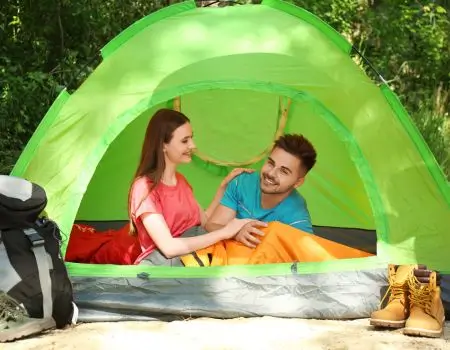
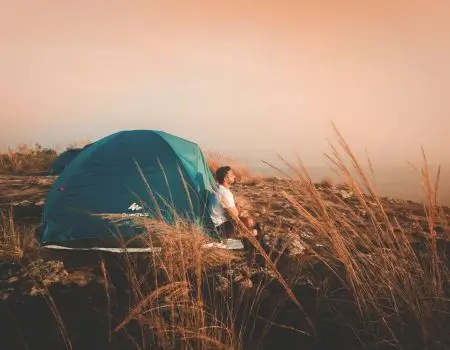
Tent Camping outdoor is living the Great Outdoor. The ultimate break from the hustle and bustle of daily life and the chance to reconnect with nature.
Living the Great Outdoors with Trusted Outdoor Gear!
Disclosure: When you buy through links on our site, we may earn an affiliate commission from our partners at no additional cost to you. Thank you for your support!


